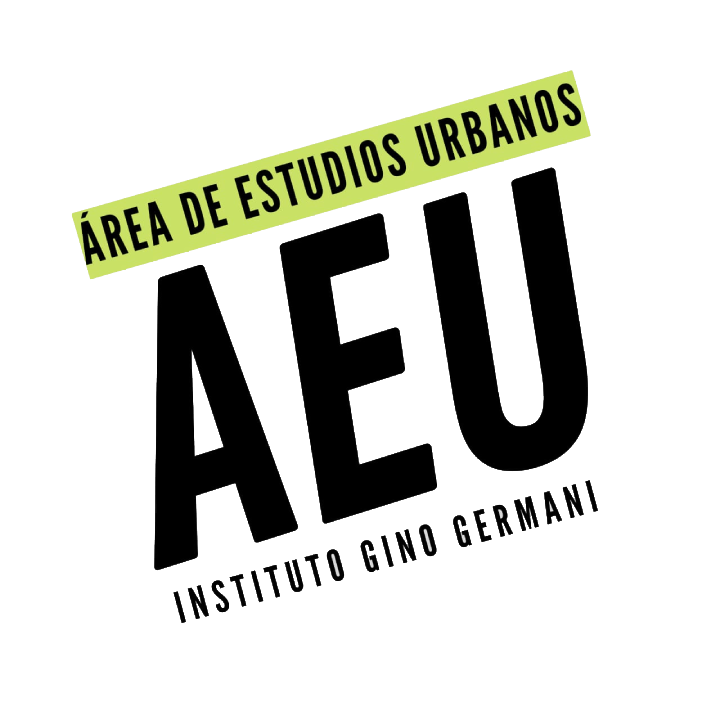Movilizando el nuevo paradigma de las movilidades
Resumen
La formulación de un “nuevo paradigma de las movilidades” surgió hace 10 años, o un poco más, en un contexto de varios cambios teóricos significativos, desarrollos metodológicos y novedosas preguntas y enfoques de investigación (Sheller y Urry, 2006). En este primer número de Applied Mobilities, revemos las formas en las que el nuevo paradigma ha transformado la investigación aplicada sobre movilidades durante la última década y cómo podría continuar reconfigurándola. Primero esbozamos el nuevo paradigma y examinamos tres aproximaciones teóricas que lo sitúan en una constelación incipiente de una innovadora ciencia social. Luego evaluamos el impacto del nuevo paradigma sobre ámbitos emergentes de las ciencias sociales, midiendo con ciertos indicadores la formación de una comunidad de expertos yla ecología del campo emergente. Finalmente, el artículo explora la relevancia del paradigma para la investigación aplicada en transporte urbano, cambio climático y transiciones energéticas.
Texto completo:
PDFReferencias
ADEY,Peter ( 2010a). Mobility. London: Routledge.
ADEY, Peter (2010b). Aerial Life. London: Wiley.
ADEY,Peter, Bissell,David, Hannam, Kevin,Merriman, Peter and Sheller, Mimi(eds). (2014)The Routledge Handbook of Mobilities. London: Routledge.
ALDRED, Rachel and Jungnickel, Katrina (2012) “negotiating Mobile Spaces between ‘leisure’ and ‘Transport’: A Case Study of Two Group Cycle rides.” Sociology 46 (3): 523–539.
AMIN, Ash, and Thrift, Nigel(2002). Cities: Reimagining the Urban. Cambridge: Polity.
AMOORE, Louise (2013). The Politics of Possibility.Durham, NC: Duke University press.
ARBOLEDA, Martín.(2015) “Spaces of extraction, Metropolitan explosions: planetary Urbanization and the Commodity Boom in latin America.” International Journal of Urban and Regional Research. Vol 40 (1). Pp.96-112.
BANISTER,David, Schwanen, Tim and Anable,Jilian(eds.)(2012) “Special Section on Theoretical perspectives on Climate Change Mitigation in Transport.” Journal of Transport Geography 24. Pp. 467–535.
BEN-JOSEPH, ERAN (2012)Re-thinking a Lot: The Design and Culture of Parking. Cambridge: MIT press.
BERGMANN, Sigurd and SAGER, Tore (eds)(2008). The Ethics of Mobilities: Rethinking Place, Exclusion, Freedom and Environment. Aldershot: Ashgate.
BIRTCHNELL, Thomas and BÜSCHER, Monika(eds) (2011) “Stranded. An eruption of disruption.” Mobilities 6 (1): 1–102.
BRENNER, Neil(ed) (2014)Implosions/Explosions: Towards a Study of Planetary Urbanization. Berlin: Jovis.
BRENNER, Neil and SCHMID, Christian(2014) “Planetary Urbanization.” In Brenner, Neil (ed) Implosions/Explosions: Towards a Study of Planetary Urbanization. Berlin: Jovis. Pp. 160–163.
BRENNER, Neil and SCHMID, Christian(2015). “Towards a new epistemology of the Urban?” City 19 (2–3): 151–182.
BRULLE, Robert and DUNLAP, Riley (eds.)(2015). Climate Change and Society: Sociological Perspectives. Oxford: Oxford University press.
BÜSCHER, Monika, LIEGL,Michael and THOMAS, Vanessa(2014). “Collective Intelligence in Crises.” In, MIORANDI, Daniele, MALTESE, Vicenzo, ROVATSOS, Michael, NIJHOLT, Anton and STEWART, James (ed)Social Collective Intelligence.Switzerland: Springer. Pp.243–265.
BÜSCHER, Monika and URRY, John (2009)“Mobile Methods and the empirical”. European Journal of Social Theory 12 (1). Pp. 99–116.
BÜSCHER, Monika, URRY, John and WITCHGER,Katian (2011). Mobile Methods. Abingdon: Routledge.
BYRNE,David (1998). Complexity Theory and the Social Sciences. London: Routledge.
CANZLER,Weert, KAUFMANN, Vincent and KESSELRING, Sven (eds)(2008). Tracing Mobilities: Towards a Cosmopolitan Perspective.Farnham: Ashgate.
CAPRA,Fritjof (1996) The Web of Life. London: Harper Collins.
CILLIERS, Paul (1998). Complexity and Postmodernism.London: Routledge.
CLOKE, Paul,CRANG, Philip and GOODWIN, Mark (eds) (2014)Introducing Human Geographies. 3rd ed. London: Routledge.
COWEN, Deborah (2014)The Deadly Life of Logistics. Minneapolis: University of Minnesota press.
CRESSWELL, Tim(2006)On the Move. London: Routledge.
CRESSWELL, Tim(2011) “Mobilities I: Catching up.” Progress in Human Geography 35 (4). Pp.550–558.
CRESSWELL, Tim (2012) “Mobilities II: Still.” Progress in Human Geography 36 (5). Pp. 645–653.
CRESSWELL, Tim (2014) “Mobilities III: Moving on.” Progress in Human Geography 38 (5). Pp.712–721.
D’ANDREA, Anthony, CIOLFI, Luigina and GRAY, Breda (eds) (2011). “Methodological Challenges and Innovations in Mobilities research.” Mobilities 6 (2). Pp. 149–160.
DENNIS, Kingsley and URRY, John (2009). After the Car. Cambridge: Polity.
DE SOUZA E SILVA, Adriana and FRITH, Jordan (2012). Mobile Interfaces in Public Spaces: Control, Privacy, and Urban Sociability. London: Routledge.
DE SOUZA E SILVA, Adriana and SHELLER, Mimi (eds) (2015). Mobilities and Locative Media: Mobile Communication in Hybrid Spaces. London: Routledge.
DODGE, Martin and KITCHIN, Rob(2011)Code/Space: Software and Everyday Life. Cambridge: MIT press.
EDENSOR, Tim(1998). Tourists at the Taj: Performance and Meaning at a Symbolic Site. London: Routledge.
EDENSOR, Tim(2000) “Staging Tourism: Tourists as performers.” Annals of Tourism Research 27. Pp.322–344.
EDENSOR, Tim (2001) “Performing Tourism, Staging Tourism: (re)producing Tourist Space and practice.” Tourist Studies 1. Pp. 59–82.
ELLIOTT, Anthony and URRY, John(2010). Mobile Lives. London: Routledge.
FARMAN, Jason(2013). Mobile Interface Theory: Embodied Space and Locative Media. London: Routledge.
FERGUSON, Harry(2011) “Mobilities of Welfare: The Case of Social Work.” Büscher, Monika, URRY, John and WITCHGER, Katian (2011). Mobile Methods. London: Routledge. Pp.72–87
FINCHAM, Ben, MCGUINNESS,Mark and MURRAY, Lesley (eds)(2009). Mobile Methodologies. Houndmills: Palgrave Macmillan.
FREUDENDAL-PEDERSEN, Malene(2009). Mobility in Daily Life: Between Freedom and Unfreedom. Farnham: Ashgate.
GATRELL, Anthony (2011) Mobilities and Health. Farnham: Ashgate.
GEELS, Frank (2005). “The dynamics of Transitions in Socio-technical Systems: A Multi-level Analysis of the Transition pathway from horse-drawn Carriages to Automobiles (1860–1930).” Technology Analysis and Strategic Management 17. Pp. 445–476.
GEELS, Frank(2006). “Multi-level perspective on System Innovation: relevance of Industrial Transformation.” In Olsthoorn, Xander and Wieczorek, Ana (ed) Understanding Industrial Transformation: Views from Different Disciplines. The netherlands: Springer. Pp. 163–186.
GEELS, Frank(2014) “Regime resistance against low-carbon Transitions: Introducing politics and power into the Multi-level perspective.” Theory, Culture and Society 31. Pp. 21–40.
GEELS, Frank, and Smit, Wim(2000) “Failed Technology Futures: pitfalls and lessons from a historical Survey.” Futures 32. Pp. 867–885.
GEELS, Frank, Kemp, Rene, Dudley,Geof and Lyons, Glenn (2012). Automobility in Transition? A Socio-technical Analysis of Sustainable Transport. London: Routledge.
GRAHAM, Stephen (ed.)(2009). Disrupted Cities: When Infrastructure Fails. London: Routledge.
GRAHAM, Stephen (2011). Cities under Siege: The New Military Urbanism.London: Verso.
GRAHAM,Stephen and Marvin, Simon (2001) Splintering Urbanism: Networked Infrastructures.London: Routledge.
GRIECO, Margaret and URRY, John(eds)(2012). Mobilities: New Perspectives on Transport and Society. Farnham: Ashgate.
HALL, Peter and HESSE, Markus(eds)(2013). Cities, Regions and Flows. Abington: Routledge.
HANNAM, Kevin and MOSTAFANEZHAD, Mary (eds.)(2014)Moral Encounters in Tourism. Farnham: Ashgate.
HANNAM, Kevin, SHELLER, Mimi and URRY, John (2006) “editorial: Mobilities, Immobilities and Moorings.” Mobilities 1 (1). Pp. 1–22.
ILCAN, Suzan (ed.)(2013). Mobilities, Knowledge and Social Justice. Montreal: McGill-Queen’s University press.
JENSEN, Ole B. (2013)Staging Mobilities. London: Routledge.
JENSEN, Ole B. (2014)Designing Mobilities. Aalborg: Aalborg University press.
JENSEN, Ole B. (ed.)(2015). Mobilities: Critical Concepts in Built Environment. 3 Vols. London: Routledge.
KAPLAN, Caren (1996) Questions of Travel. Durham, NC: Duke University press.
KRONLID, David(2008) “Mobility as Capability.” In Uteng, Tanu Priya and Cresswell, Tim (ed)Gendered Mobilities. Aldershot: Ashgate. Pp. 15–33.
KUHN, Thomas(1962). The Structure of Scientific Revolutions. Chicago, Il: University of Chicago press.
LAKATOS,Imre and Musgrave, Alan(eds.)(1970). Criticism and the Growth of Knowledge. Cambridge: Cambridge University press.
LYONS, Glenn and Urry, John(2005). “Travel Time Use in the Information Age.” Transportation Research Part a: Policy and Practice. 39 (203). Pp.257–276.
MAVHUNGA, Clapperton (2014). Transient Workspaces. Cambridge, MA: MIT press
MCCANN, Eugene and WARD, Kevin (2012) “Assembling Urbanism: Following policies and ‘Studying Through’ the Sites and Situations of policy Making.” Environment and Planning 44. Pp. 42–51.
MERRIMAN, Peter(2015) “Mobilities I: departures.” Progress in Human Geography 39 (1). Pp. 87–95.
MOLZ, Jennie(2012). Mobilizing Hospitality: The Ethics of Social Relations in a Mobile World. Aldershot: Ashgate.
MONTGOMERY, Charles(2013). Happy City. London: Penguin.
MOSTAFAVI, Mosehn and Doherty, Gareth(2013)Ecological Urbanism. Zurich: lars Müller publishers with harvard Graduate School of design.
MOUNTZ, Alison(2010)Seeking Asylum. Minneapolis, Mn: University of Minnesota press.
NEWMAN, Peter and KENWORTHY, Jeffrey(2015). The End of Automobile Dependence. Washington, DC: Island press.
ORMEROD, Paul(2012). Positive Thinking. London: Faber and Faber.
PACKER, Jeremy and WILEY, Stephen(eds.)(2012). Communication Matters: Materialist Approaches to Media, Mobility and Networks.London: Routledge.
PEDERSEN, M., and LARSEN, Jonas. 2015. Tourism, Performance and the Everyday: Consuming the Orient. London: Routledge.
PRYTHERCH, David and CIDELL, Julie(2015). “Introduction: Transportation, Mobilities, and rethinking Urban Geographies of Flow.” In CIDELL, Julie and PRYTHERCH, David (ed) Transport, Mobility and the Production of Urban Space. London: Routledge. Pp. 19–41
ROSS, Benjamin(2014). Dead End. Suburban Sprawl and the Rebirth of American Urbanism. Oxford: Oxford University press.
SAWCHUK, Kim(2014). “Impaired.” In ADEY, Peter, BISSELL, David, HANNAM, Kevin, MERRIMAN, Peter and SHELLER, Mimi (eds). (2014) The Routledge Handbook of Mobilities. London: Routledge. Pp. 409–420.
SHAW, Jon andHESSE, Markus(2010). “Transport, Geography, and the ‘new’ Mobilities.” Transactions of the Institute of British Geographers 35 (3). Pp. 305–312.
SHELL,Jacob (2015). Transportation and Revolt. Cambridge, MA: MIT press.
SHELLER, Mimi (2003). Consuming the Caribbean. London: Routledge.
SHELLER, Mimi(2011a.) “The emergence of new Cultures of Mobility: Stability, Openings, and prospects.” GEELS, Frank, KEMP, Rene, DUDLEY, Geof and LYONS, Glenn (2012). Automobility in Transition? A Socio-technical Analysis of Sustainable Transport. London: Routledge. Pp.180–202.
SHELLER, Mimi(2011b). “Mobility”. Sociopedia.doi:10.1177/205684601163
SHELLER, Mimi(2013a.) “Mobile Mediality: location, dislocation, Augmentation.” InVOGL, Gerline, WITZGALLSusane and KESSELRING, Sven (ed)New Mobilities Regimes in Arts and Social Sciences. London: Ashgate. Pp. 309–326.
SHELLER, Mimi(2013b.) “The Islanding effect: post-disaster Mobility Systems and humanitarian logistics in haiti.Cultural Geographies 20 (2). Pp. 185–204.
SHELLER, Mimi(2014a.) “Vital Methodologies: live Methods, Mobile Art and research Creation.” In VANNINI, Philip (ed) Nonrepresentational Methodologies: Re-envisioning Research. New York: Routledge. Pp. 130–145.
SHELLER, Mimi (2014b). “The new Mobilities paradigm for a live Sociology”. Current Sociology 62. Pp. 789–811.
SHELLER, Mimi(2014c). Aluminum Dreams: The Making of Light Modernity. Cambridge, MA: MIT press.
SHELLER, Mimi, and Urry, John(2000) “The City and the Car.” International Journal of Urban and Regional Research 24. Pp. 737–757.
SHELLER, Mimi and Urry, John(2006). “The new Mobilities paradigm.” Environment and Planning A 38 (2). Pp. 207–226.
SHOVE, Elizabeth (2010). “Beyond the ABC: Climate Change policy and Theories of Social Change.” Environment and Planning A 42. Pp. 1273–1285.
SHOVE, Elizabeth,Chappells,Heather and Lutzenhiser, Loren (eds.) 2009. Comfort in a Lower Carbon Society. London: Routledge.
SHOVE, Elizabeth and Walker, Gordon (2010) “Governing Transitions in the Sustainability of everyday life.” Research Policy 39. Pp. 471–476.
SIMS, Ralph, SCHAEFFER, Roberto, CREUTZIG, Felix,CRUZ-NÚÑEZ,Xochitl, D’AGOSTO, Marcio, DIMITRIU, Delia, FIGUEROA MEZA, María Josefina, FULTON, Lew, KOBAYASHI, Shigeki, LAH, Oliver, MCKINNON, Alan, NEWMAN, Peter, OUYANG, Minggao, JAY SCHAUER, James, SPERLING, Daniel, TIWARI, Geetam (2014). “Transport.” In Climate Change 2014: Mitigation of Climate Change. Contribution of Working Group III to the Fifth Assessment Report of the Intergovernmental. Panel on Climate Change. Cambridge: Cambridge University press.
SOUTHERN, Jen (2012) “Comobility: how proximity and distance Travel Together in locative Media.” Canadian Journal of Communication 37 (1). Pp. 75–91.
STIGLITZ, Joseph (2004). The Roaring Nineties: A New History of the World’s Most Prosperous Decade. New York: W.W. Norton.
SUTTON, John (2016). Gridlock: Congested Cities, Contested Policies, Unsustainable Mobility. London: Routledge.
SZERSZYNSKI, Brosnilaw and URRY, John (2010) “Changing Climates: Introduction.” Theory, Culture and Society 27 (2–3). Pp. 1–8.
TEMENOS, Cristina and MCCANN, Eugene(2013). “Geographies of policy Mobilities.” Geography Compass 7 (5). Pp. 344–357.
THRIFT, Nigel (2004) “Movement-space: The Changing domain of Thinking resulting from the development of new Kinds of Spatial Awareness.” Economy and Society 33 (4). Pp. 582–604.
TYFIELD, D., and URRY, John (2014) “Energy and Society.” Theory, Culture and Society 31 (5). Pp.1–226.
URRY, John(1973) “Thomas S. Kuhn as Sociologist of Knowledge.” The British Journal of Sociology 24 (4). Pp. 462–473.
URRY, John(1990). The Tourist Gaze.London: Sage.
URRY, John (2000) “Mobile Sociology.” British Journal of Sociology 51. Pp.185–203.
URRY, John (2007). Mobilities. Cambridge: Polity.
URRY, John (2011). Climate Change and Society. Cambridge: Polity.
URRY, John(2013). Societies beyond Oil. London: Zed.
URRY, John (2014).Offshoring. Cambridge: Polity.
URRY, John and LARSEN, Jason (2011). The Tourist Gaze 3.0.London: Sage.
Uteng, Tanu Priya and Cresswell, Tim (ed) (2008) Gendered Mobilities. Aldershot: Ashgate. WALLERSTEIN, Immanuel (1996). Open the Social Sciences. Report of the Gulbenkian Commission on the Restructuring of the Social Sciences. Stanford: Stanford University press. WILEY, Steve and PACKER, Jeremy (2010) “Rethinking Communication after the Mobilities Turn.” The Communication Review 13 (4): 263–268.
VOGL, Gerline, WITZGALL Susane and KESSELRING, Sven (ed) (2013) New Mobilities Regimes in Arts and Social Sciences. London: Ashgate
Enlaces refback
- No hay ningún enlace refback.
Estadísticas
Visitas al Resumen:998
PDF:902
Quid16. Revista del Área de Estudios Urbanos. ISSN: 2250-4060.
Los trabajos publicados en esta revista están bajo licencia Creative Commons Attribution 4.0 International.







